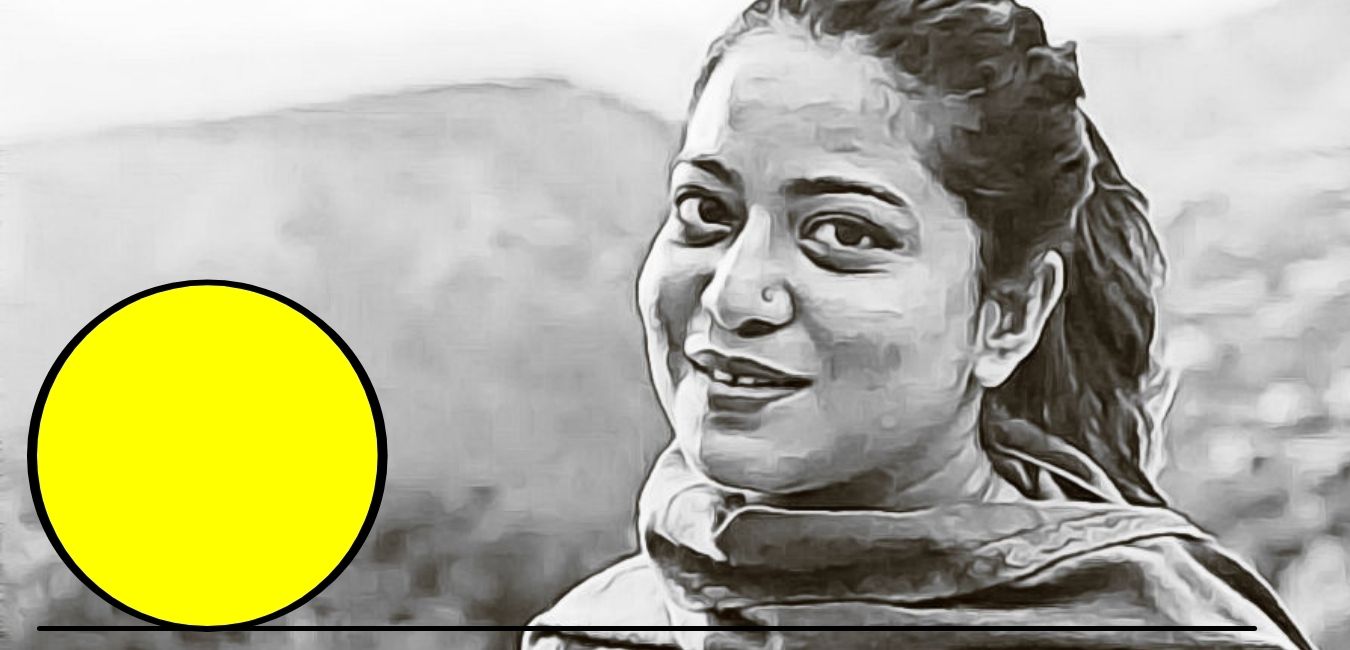The Working Group said that given Zargar’s medical condition, there “was no necessity for an urgent arrest of the student activist, however serious the charges”.
Ms. Zargar had suffered a “deprivation of liberty” contravening “universally recognized human rights, in particular, the right to freedoms of opinion, expression and peaceful assembly” and several articles of the Universal Declaration of Human Rights, the report said.
The detention of Safoora Zagar
Safoora Zagar was initially arrested at her residence by Delhi Police on 10 April 2020, with police alleging that she was among those who organized an anti-CAA protest and road blockade under the Jaffrabad metro station in Delhi on 22–23 February.
The first information report accused several people of instigating protests against the Citizenship Amendment Act near the Jaffrabad metro station on February 22 and triggering the riots that followed. Zargar was not among the 14 accused initially named in the FIR.
On 11 April she was brought before the Metropolitan Magistrate and remanded in police custody for two days. On 13 April she was granted bail but immediately rearrested by the police on another charge. Additional charges were brought against her on 20 or 21 April.
On 25 November 2020, Delhi High Court granted her permission to stay at her maternal home in Haryana for two months, on condition that she put a pin on Google maps, to help the investigating officer to verify where she was.
There were other conditions — she needed to contact the investigating officer by telephone every 15 days, and she would need the permission of the trial court if she needed to travel.
Delhi police have said that the violence was a pre-meditated conspiracy and all arrests have been made based on scientific and forensic evidence. Zargar is also charged under the Unlawful Activities (Prevention) Act (UAPA).
UN Working group critical of the Indian government workings and referred the case to three special Rapporteurs for action
Taking note of the detention of Safoora Zargar, who was pregnant when Delhi police arrested her in April 2020 over the Citizenship law protests and the Delhi riots, the Geneva-based UN Human Rights Council’s (HRC’s) Working Group against Arbitrary Detentions (WGAD) has adopted a view critical of the government’s workings, and referred the case to three Special Rapporteurs for action.
In the opinion, based on a complaint from a “source” who remains unnamed by the human rights body, Ms. Zargar had suffered a “deprivation of liberty” contravening “universally recognized human rights, in particular the right to freedoms of opinion, expression, and peaceful assembly” and several articles of the Universal Declaration of Human Rights.
It also called the government to ensure “a full and independent investigation” of the case and measures against those responsible for the “violation of her rights” including Ms. Zargar’s allegedly irregular detention despite her pregnancy, where she said she was made to sign blank sheets of paper, the conditions of her incarceration, alleged discrimination, and curbing her right to protest.
“Given the fact that Ms. Zargar was critical of the passing of the Citizenship (Amendment) Act, as a woman human rights defender engaged in public protests against the Citizenship (Amendment) Act, and a media liaison officer for the Jamia Coordination Committee, her current detention can clearly be interpreted as another move to curb her dissent by intimidating her and others associated with the Jamia Coordination Committee,” the WGAD’s 11-page opinion, adopted on November 27, 2020, that was released on Thursday, said in its analysis of Ms. Zargar’s case.
In the disposition, the WGAD also said it was referring the case to Special Rapporteurs on “the promotion and protection of the right to freedom of opinion and expression — the situation of human rights defenders; and on the promotion and protection of human rights and fundamental freedoms while countering terrorism,” for appropriate action.
The UNWGAD, which has a mandate from the UN Human Rights Council, comprises a panel of experts from Australia, Latvia, South Korea, Zambia and Ecuador.
The Working Group claimed that the allegations regarding Safoora Zargar’s detention to the Indian government on July 22 and requested for response by September 21, 2020. “The Working Group regrets that it did not receive a response from the Government, and neither did the Government request an extension of the time limit for its reply, as is provided for in the Working Group’s methods of work”.
In an opinion adopted at its 89th session last November but publicly released on Thursday, the Working Group stated:
The deprivation of liberty of Safoora Zargar, being in contravention of articles 2, 3, 7, 8, 9, 10, 11, 19, 20, and 21 (1) of the Universal Declaration of Human Rights and articles 2 (1) and (3), 9, 14, 19, 25 (a) and 26 of the Covenant, was arbitrary and fell within categories I, II and V.
In a statement, Ms. Zargar thanked the UN body for “taking cognizance” of the case, and called her case part of an “unfortunate trend”.
“I am lucky and thankful and at the same time hope that the situation for all human rights defenders will improve in future and that all political prisoners be immediately released, unconditionally,” Ms. Zargar’s statement added.
The Ministry of External Affairs did not respond to the HRC body’s decision. The WGAD report said it had written to the Indian government on July 22, 2020, with a request for a reply for information in the Zargar case within three months, but the government had not responded nor requested an extension of time.
Last month, the MEA had reacted sharply to another WGAD indictment of the government in the detention of British businessman Christian Michel, as well as to comments by the Human Rights Council Chief Michelle Bachelet who has criticized the government over the farmers’ protests, actions against NGOs like Amnesty International, and has sought to intervene in a case against the Citizenship Amendment Act (CAA).
“The Working Group should be aware that India has robust grievance and redressal mechanisms against allegations of violations of human rights, a vibrant and independent judiciary and a ‘category A’ National Human Rights Commission (NHRC) compliant with the Paris Principles,” the MEA had said in its response on the Michel case.
International law experts say that the WGAD’s opinion is not at present actionable by the Human Rights Council, which is currently in session but could set India and the HRC on a further collision course.
“I am sure India will defend itself, particularly since there is an internal legal process already at work, and all domestic options like the NHRC have not been exhausted yet. Therefore, more than actual international ramifications, the worry would be about reputational damage for India,” Avi Singh, a lawyer with experience in international courts, told The Hindu, adding that the case is likely to be taken up during India’s Universal Periodic Review at the Human Rights Council, next due in 2022.
The Working Group at the moment has asked for follow-up information from the two stakeholders – the Indian government and the ‘source’ that submitted Zargar’s case – to inform them whether the research scholar had been unconditionally released, compensated, ordered a full investigation and whether any legislative amendments had been made to harmonize the laws and practices with international obligations.
While asking for this information within six months from the date of transmission of the opinion, the Working Group also “take its own action in follow-up to the opinion if new concerns in relation to the case are brought to its attention”.



